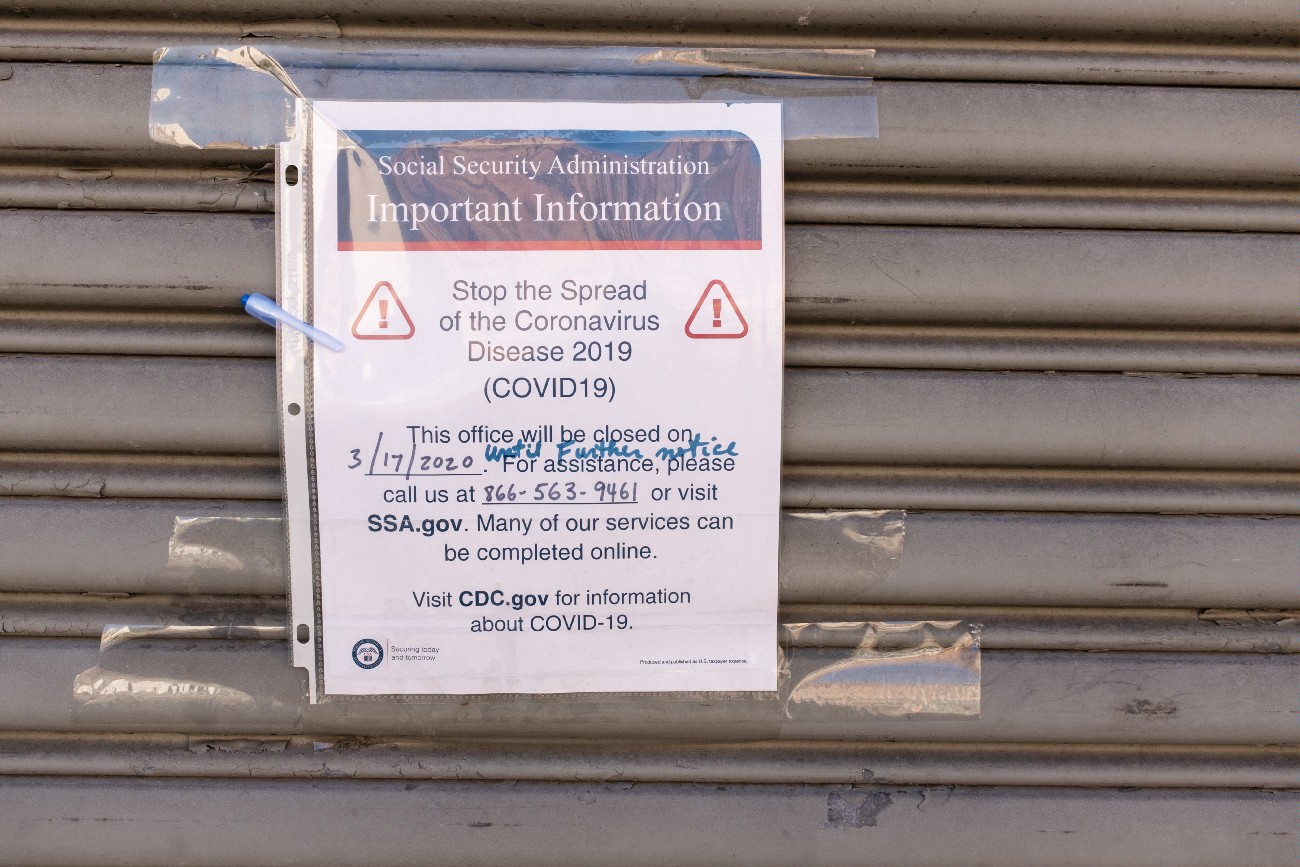
Jeff Greenberg/Getty Images
Less Than a Week after Social Security Offices Reopen, Unions Report a Mixed Bag
Although some components reported a more collaborative labor-management relationship, that did not extend to field office employees, who now report feeling physically threatened at work.
After two years of most of the agency’s offices being closed to the public—except by appointment—due to the COVID-19 pandemic, the Social Security Administration reopened its traditional worksites last week.
But labor groups, who in January reached an agreement with the agency to negotiate further on the component level about how reentry would occur, reported that process was a mixed bag, with employees at teleservice centers and the agency’s around 1,200 field offices getting the short end of the stick.
Rich Couture, president of the American Federation of Government Employees Council 215, which represents employees in the Office of Hearing Operations, and chief negotiator for the union on reentry, said that although some offices, like his own, were successful in reaching agreement ahead of offices reopening last week, the majority were not.
"I can say that generally, with few exceptions, the component council meetings did not achieve their purpose,” he said. “There were whole issues that were not considered appropriate for discussion by the agency. It was primarily telework, but proposals to address process reform, workload management and those types of proposals were given a full hearing, much less discussed.”
Unlike most other components, who were unable to secure expanded telework schedules compared to those originally proposed by the agency, employees at the Office of Hearing Operations were able to increase their allowed telework from three days per week to four, while some workers with no direct interaction with the public secured full-time telework.
“The level of engagement we had between Council 215 and OHO was not shared across the board,” Couture said. “From my perspective, it was an opportunity for cooperation that was squandered by the rest of the agency.”
Angela Digeronimo, president of AFGE Local 2505, which represents employees in Social Security field offices and its teleservice centers, said nearly all of her union’s proposals, ranging from increased telework, setting up cohorts that would cycle into the office for a week while others work remotely—to mitigate spread of COVID-19—and preserving some office hours as by appointment only, were all flatly rejected by management. Unlike Office of Hearing Operations staff who have no interaction with the public, teleservice center employees, whose work is similarly completely portable, must still come in one day per week.
“These were all things we wanted to discuss and explore further, and everything that we put on the table they were not willing to do,” Digeronimo said. “The agency is saying, ‘We’re critically understaffed,’ and the agency is claiming that it’s because of the appropriations not being sufficient, so staffing will remain flat and we have been for four years. But it’s more than that: it’s the fact that they are not willing to reimagine how we do business with the public and reinvent services so they’re better for the public and also the work-life flexibilities for employees, so we’re not attracting or retaining people.”

Credit: VW Pics/Getty Images
In a statement, Social Security Administration spokeswoman Nicole Tiggemann said the agency will continue to evaluate service needs at field offices over the next several months, and could expand workplace flexibilities as demand slows.
“We recognize the need to restore walk-in service while prioritizing health and safety, especially to reach people who have experienced difficulties reaching us through other channels,” she said. “Our field offices must be staffed to support public need for in-person service, including walk-up service. We continue to invest in automation, like centralizing the printing of notices, that could drive down work that requires employees to be onsite. Additionally, our reentry plan provides a six-month evaluation learning period, which includes expanded telework, to inform our future.”
Digeronimo said that agency employees learned that offices would reopen on April 7 at the same time it was announced to the public: last Monday. She described a rocky start to in-person services, with long lines and retired managers temporarily rehired for “crowd control,” some workers already testing positive for COVID-19, and conditions that left some employees feeling threatened or otherwise unsafe.
“We’ve had claimants actually follow employees to their car and knock on their window, so they’re fearful and there’s anxiety,” she said. “Our employees want to do a good job and we’re committed to the public service that we signed on for and 99% of employees took this job because it was a calling . . . By doing our work and doing it well, we make a difference in these people’s lives and we take that very seriously. But unfortunately, the agency doesn’t take our lives into consideration.”
The agency employs contractors to serve as security guards at field offices. But Digeronimo said that the contract stipulates that they are only responsible for what goes on inside field offices, leaving employees exposed as they walk to and from their vehicles.
Tiggemann said in a statement that the agency is committed to protecting employees’ health and safety.
“We have armed protective security officers in all of our field offices and have security protocols in place to protect our employees,” she said. “In addition, the Federal Protective Service and local law enforcement are available for additional support when needed.”
But Digeronimo said she feels like some of people’s frustration with field office employees could have been averted if the agency did a better job protecting them from the insinuation that they haven’t been at work for the last two years.
“The agency has a Facebook page, and I’ve been sort of looking at it on a regular basis, and a lot of it is the public saying, ‘You need to reopen, you’ve had enough of a vacation,’” she said. “But the agency hasn’t been doing anything to refute that frame of mind. They’re letting the public think that the employees have been home not doing anything, collecting a paycheck while not working when, in fact, we have been working . . . They did a good thing [keeping offices closed] to keep us safe [from COVID], but there are people who are going to get frustrated and then see an employee and try to get an answer from them, sometimes aggressively.”







